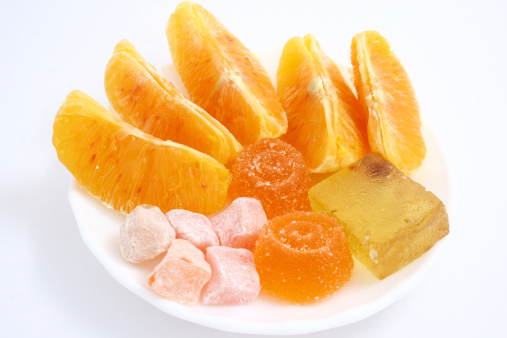 Over the years, the consumption of sugar – in particular fructose – has sky-rocketed. Aside from the fact that refined, processed fructose can pack on weight, raise your cholesterol, and contributes to tissue damage and diabetes, a new study published in Cancer Research found that fructose also seems to trigger the development and growth of cancer. In light of the fact that the average American eats about 70 grams of fructose per day – three times the daily amount that is recommended – these findings present a terrifying reality that we could all potentially face.
Over the years, the consumption of sugar – in particular fructose – has sky-rocketed. Aside from the fact that refined, processed fructose can pack on weight, raise your cholesterol, and contributes to tissue damage and diabetes, a new study published in Cancer Research found that fructose also seems to trigger the development and growth of cancer. In light of the fact that the average American eats about 70 grams of fructose per day – three times the daily amount that is recommended – these findings present a terrifying reality that we could all potentially face.
What is Fructose?
Fructose, the scientific name for fruit sugar, is a simple monosaccharide that is found in various plants. Fructose is naturally found in tree and vine fruits, flowers, berries, and many root vegetables. But before you starting cutting out fruits and vegetables, it’s important to recognize that, in North America, the most common form of fructose in the diet comes is an isolated and refined form, high fructose corn syrup, that is often derived from sugar cane, sugar beets and corn. Additionally, it is also found in refined sweeteners such as sucrose, maltose and dextrose.
Fructose and Cancer Research
Advertisement
Most research regarding the relationship between sugar and cancer traditionally focused on glucose. It has long been known that carbohydrate metabolism is essential for cancer growth. Moreover, increased carbohydrate uptake in the form of refined sugars negatively affects cancer survival.
However, with the rising consumption of fructose in the average American diet, attention has been given to studying its behavior in recent years. Glucose and fructose are metabolized very differently in the body, using different transporter cells in the body.
For the 2010 study, researchers took pancreatic cancer cells from their patients and grew the cells in petri dishes. Then they added glucose to one petri dish and fructose to the other petri dish. While the results showed that the cancer cells used both the glucose and fructose for fuel, the researchers discovered that fructose also induced a different kind of reaction, known as a thiamine-dependant transketolase flux. The cancer cells also metabolized the fructose differently, which increased uric acid production. The fructose was easier for the cancer cells to metabolize, and thus influenced more cancer cells reproduction.
Reducing Fructose from your Diet
The study showed that a high fructose diet could stimulate cancer development and growth. If you’re looking to reduce your intake of sugar, particularly fructose, the best thing you can do for yourself and your health is to minimize processed foods and sweetened drinks from your diet, all of which are the worst culprits of high-fructose corn syrup. Minimizing your intake of fruit juices is also advised, as these often contain higher levels of fructose.
Changing your diet to minimize the amount of fructose you consume is one step that you can take to minimize your cancer risk. Such dietary changes will complement an overall healthy lifestyle, which includes eating plenty of fresh veggies, lean meats, low-fat dairy and whole grains, as well as stress reduction and regular exercise.
